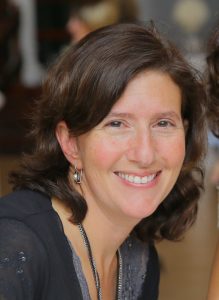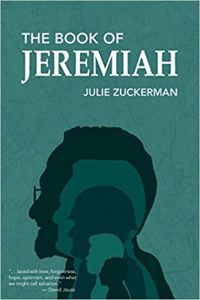Mining the Family Store
 What could a US soldier on leave in Paris after VE day, a little boy carrying a live chicken inside his synagogue, and a man dressed as a woman and smuggled out of Russia to avoid the Czar’s army have in common? Or a picture of Israeli and Egyptian soldiers in Eilat, circa 1949, after the fighting was over, laughing and trading cigarettes. These are the stories that populate my memory, though I was born long after these events occurred.
What could a US soldier on leave in Paris after VE day, a little boy carrying a live chicken inside his synagogue, and a man dressed as a woman and smuggled out of Russia to avoid the Czar’s army have in common? Or a picture of Israeli and Egyptian soldiers in Eilat, circa 1949, after the fighting was over, laughing and trading cigarettes. These are the stories that populate my memory, though I was born long after these events occurred.
My own (rather conventional) life has not been filled with high drama; family lore is the oxygen fueling my fiction. When composing a story or dreaming up situations or quirks for my characters, I mine these family stories like a sniffer dog looking for explosives.
This one I remember clearly: when I was in fifth or sixth grade, a few neighborhood boys toilet-papered the trees in our front yard on Mischief Night. One of them had a well-known crush on me and perhaps thought this was a good way to show his affection. After the boys bragged about it on the school bus the next day, my mother invited them to a clean-up party. They came, cleaning supplies in tow (no doubt my mother had told their mothers, all good friends of hers), and when they finished, they sat eating cookies in our kitchen, no doubt feeling rather foolish. I don’t recall if I was mortified, but I certainly wasn’t surprised: this was totally something my mother would do. The anecdote made its way into one of my stories, along with dozens of little quirks of my mother and other family members. Sorry, guys. (But also: thanks)!
On occasion, I’ve written a piece and only afterwards discovered a connection. One of the stories from THE BOOK OF JEREMIAH takes place on August 4, 1964, a day on which two things happened that have made the history books: the bodies of Michael Schwerner, Andrew Goodman and James Chaney, three civil rights workers who’d been missing for six weeks, were found in a Mississippi dam, and attacks against American destroyers in the Gulf of Tonkin were reported, paving the way for a much larger US intervention in Indochina. In my story, “Tough Day for LBJ,” Jeremiah Gerstler, the main character, has recently left a position in the Administration for a quieter life as an academic, moving his family from Washington DC to the Berkshires.
His pregnant wife is distraught over the fate of the civil rights workers; if Freedom Summer had happened 10 years prior, she’d have been among the college students who spent the summer in the south. To get the details and the historical facts right, I read newspaper archives, press conference statements, journal articles, and transcripts of the eulogies. Little did I know – until my mother read a draft – that my uncle had worked with the Lawyers’ Committee for Civil Rights Under Law during Freedom Summer and had been in Mississippi on the day the bodies were found. I promptly interviewed him over the phone; though only a detail or two made it into the final story, I now had four pages of single-spaced notes to add to the family lore. The connection goes both ways.
Other significant family specifics led to more research. My grandfather served in the U.S. Army’s 3112th Signal Service Battalion in World War II, thus it was natural for me to place the fictional Jeremiah in a similar unit. I knew my grandfather visited Paris on a furlough after VE day (though unlike my grandfather, who was 32 at the time with a wife and baby waiting at home, Jeremiah is only 19). But what types of missions would Jeremiah have conducted between the time he landed in Normandy, a month after D-Day, and the end of the war in Europe? Which equipment would he have used?
In my story, Jeremiah meets a combat nurse (in this case, a total figment of my imagination). Where would she have been during the Battle of the Bulge and what might she have seen? I found an old Signal Corps handbook and read accounts of combat nurses. I looked through photographs of post-war Paris for key details and sifted through books on the topic. In July 1945, would Parisians be back to drinking real coffee or would they still be drinking the ersatz version made with chicory? (Chicory, it turns out). The research became another highlight of the writing. Not only did this help with details and authenticity for my setting and characters, but I gleaned a fuller, more colorful picture of my grandfather’s experiences.
THE BOOK OF JEREMIAH weaves back and forth in time, from Jeremiah’s boyhood during the Depression to the modern day, when he’s an aging academic. “But is there a narrative arc?” other writers asked. I think so, I’d say.
The book spans eight decades of the Gerstler family and is tightly interwoven with the American Jewish experience of the 20th century. While there are significant differences between the fictional Gerstler family and my own (both my family and my husband’s, for example, are much more traditional and active in the Jewish community than the assimilated Gerstlers), it strikes me now that I was seeking to uncover and set down in words where my family fits into this continuum.
To chart how my paternal grandparents might have felt as immigrants, to imagine my home city of Bridgeport during the Depression or what a high school American history teacher might have taught her students at the tail end of the Vietnam War, and perhaps, most importantly, to unravel and make sense of some of the complicated behaviors and personalities I’ve known.
When I began writing, I simply wanted to tell a compelling fictional story and hadn’t anticipated the extent to which family tidbits would infuse the work. But infuse they did, consciously or subconsciously.
Several years ago, I attended a reading and a talk given by Jonathan Safran Foer and Etgar Keret in Jerusalem. Safran Foer remarked that each day when he went to his café to begin writing and was unsure of his mission, he’d repeat a mantra to himself: “Something good will come of putting these words to paper.” I told myself I’d make his mantra mine. And though I did not know it at the time, part of the joy in writing, the “something good” that would come from it all, is this accounting of experiences – my own, my family’s, and hopefully, all of ours.
My parents and most of their cousins did not follow in their parents’ footsteps and go into the family business, be it liquor stores or clothing stores. But, in documenting daily life in family books and photographs, they’ve kept our store of memories alive. To anyone who claims they’d like to write but they don’t know what to write about, I’d say: start from here. Start with your family “store.” The material is rich for mining and is yours for the taking.
—
Julie Zuckerman’s fiction and nonfiction have appeared in a variety of publications, including The SFWP Quarterly, The MacGuffin, Salt Hill, Sixfold, Crab Orchard Review, Ellipsis, The Coil, and others. THE BOOK OF JEREMIAH, her debut novel-in-stories, was the runner-up in the 2018 Press 53 Award for Short Fiction Award, and is due in May 2019. A native of Connecticut, she resides in Modiin, Israel, with her husband and four children. Learn more at https://www.juliezuckerman.
THE BOOK OF JEREMIAH
 Julie Zuckerman’s moving and engrossing debut novel-in-stories, The Book of Jeremiah, tells the story of awkward but endearing Jeremiah Gerstler–the son of Jewish immigrants, brilliant political science professor, husband, father.
Julie Zuckerman’s moving and engrossing debut novel-in-stories, The Book of Jeremiah, tells the story of awkward but endearing Jeremiah Gerstler–the son of Jewish immigrants, brilliant political science professor, husband, father.Category: On Writing
























